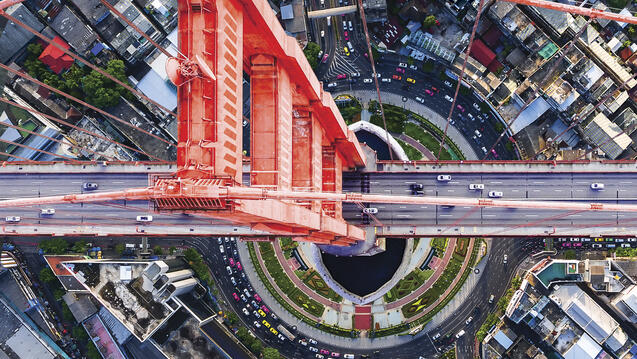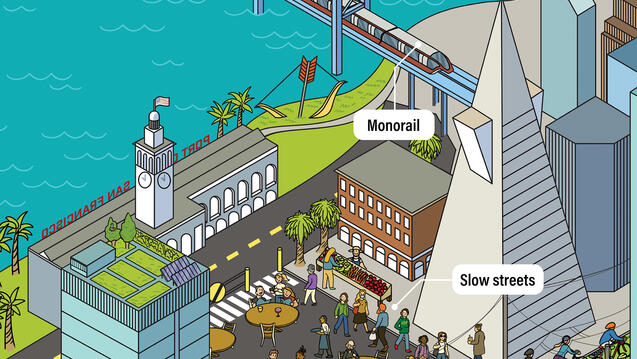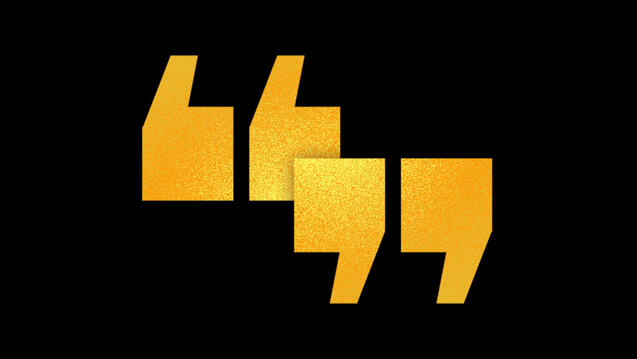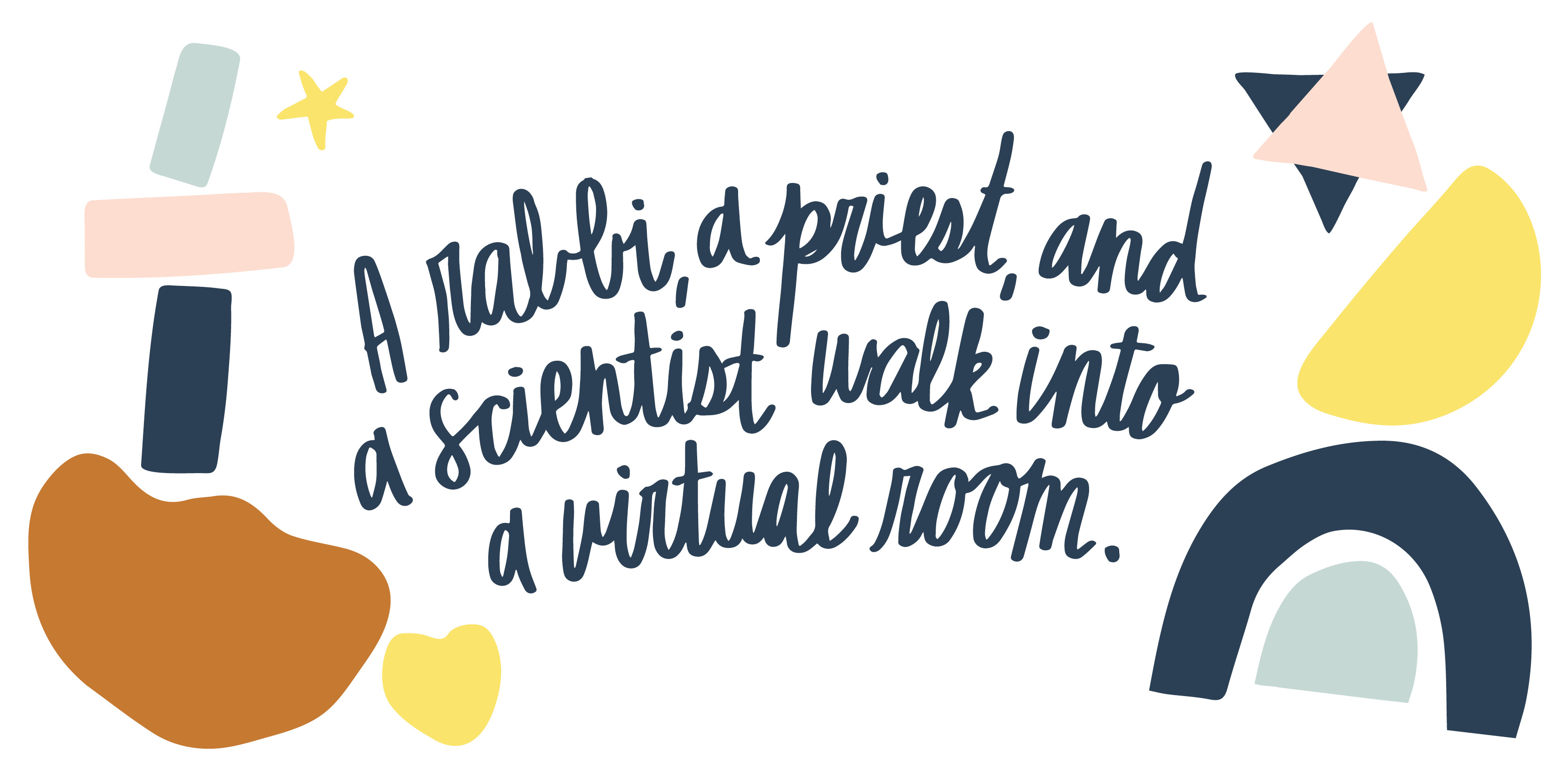
Does Faith Have a Future?

Camille Shira Angel is a ninth-generation rabbi, a USF professor who teaches the course Queering Religion, a lesbian, a wife, and a mom. She’s also USF’s first rabbi in residence, through the Swig Program in Jewish Studies and Social Justice. She officiates at Jewish events for the USF community, offers spiritual support to all her students (not only the Jewish ones), and serves as a resource for anyone desiring to learn more about Judaism.
Father Dónal Godfrey, S.J. is a Jesuit priest who runs spirituality programs for USF faculty and staff. He wrote Gays and Grays: The Story of the Gay Community at Most Holy Redeemer Catholic Parish, about the initial clash and subsequent lasting connections built between elderly parishioners and newly arrived gay men of a San Francisco Catholic parish during the AIDS crisis in the 1980s.
Xiaosheng Huang is an astrophysicist at USF whose research on deep-space gravitational lenses (the occurrence of two galaxies aligning, creating a rare opportunity to photograph the farther one) won a year-long use of the Hubble Space Telescope last year. He’s also a devout Christian.
So: What is the future of faith?
Fear Certainty, Not the Other
“The path forward is pluralism,” says Rabbi Angel. “The great threat to that is fundamentalism.”
While religious pluralism doesn’t have a single definition, one that encompasses its most basic tenets comes from nonprofit think tank The Aspen Institute: “The state of being where every individual in a religiously diverse society has the rights, freedom, and safety to worship, or not, according to their conscience.” That last part — rights, freedom, and safety to worship — is what Angel fears is under threat from fundamentalism today.
“Fundamentalism is based on fear of the other. It survives because of, and thrives on, that fear,” Angel says. She paraphrases former nun and Catholic author Karen Armstrong, saying, “The opposite of faith isn’t doubt. It’s certainty, the certainty that your way is the only way.” When people are pushed beyond their comfort zones, encouraged to look through the eyes of those whom they believe to be their enemies, faith is moved forward, Angel says.
“Listen, there’s a multiplicity of ways to get to the sacred,” she says. “None of us knows beyond a shadow of a doubt that our way, our religion, is the right way to get to what many of us call God. The goal shouldn’t be to push for our religion to be recognized as the religion. The goal should be to strengthen all religions. That’s pluralism.”

Adapt or Die
Dónal Godfrey points to the computer he is using to make this interview possible. “If faith, faith with a capital ‘F,’ is going to survive, it’s going to be because of this. Not because of adherence to tradition,” he says, referring to the notion that faith communities adapt in order to survive and be relevant.
In fact, Fr. Godfrey scoffs at the notion that an adherence to specific religious tradition is necessary to maintain one’s faith. That’s because he sees faith as inescapable. “If you’re human, you are faithful,” he says. “When you wake up in the morning, you’re committing an act of faith by putting your feet on the ground and starting your day. You have faith that you’ll be doing whatever it is you have planned for that day, that you’ll return to your bed sometime that night. We couldn’t function in the world if we didn’t rely on faith every minute of every day.”
He says the question isn’t whether faith has a future. The question is what people will put their faith in.
Fr. Godfrey echoes Rabbi Angel on this point. “A bad place to put our faith is in fundamentalism. That’s faith born of fear — that’s when faith becomes dangerous. When we see each other as a threat, faith loses.” Fr. Godfrey says he places his faith in science as well as in God. To him, science and faith are not in opposition. “Science, by its very nature, takes faith. It’s the best we can do right now. We might do better later. Science provides the facts. Faith provides the purpose. The more we discover about science, the more we deepen our understanding of God.”

Test Your Faith
For Xiaosheng Huang, “faith is that which makes it possible to not give up in the darkest times,” he says.
Like Fr. Godfrey, Professor Huang sees science and faith as a duality, and that enables him to examine the universe as a scientist and attend church as a Christian. “I know how unyielding science is. I deal with cold, hard facts every day, facts that tell me beyond a shadow of a doubt how insignificant we are. Our existence is but a blip on the universal radar; in the grand scheme of the existence of the universe, humanity is very close to nothing. Then I think ‘And yet.’ And that ‘yet’ is where my understanding of faith comes in.
“To me, during the process of understanding how vast the universe is — precisely when one starts to see how out of proportion it is — one begins to understand how deep the love of God is.”
To Huang, the cold, hard facts of the universe are what make faith all the more awe-inspiring. For thousands of years, humans have chosen to believe that there is a force greater than themselves, no matter what name they gave it or how they pledged their allegiances to it. Science has advanced from Isaac Newton’s thoughts on gravity to Elon Musk’s SpaceX launches, and the presence of faith has remained constant and overwhelmingly in the majority (although there’s no way to obtain exact numbers, various Gallup polls show the number of worldwide believers as hovering around 85 percent). This suggests that despite the potential for faith to be disrupted by scientific advancement, faith instead is constantly renewed.
“What makes us as humans convinced that we matter, when we are learning more and more about how much we don’t? My answer has to be faith,” says Huang. “When I experience how unyielding science is, I see faith as more remarkable, not less believable.”
Huang brings it back to his own experience, using himself as both a prototype for religious doubt and as an explanation of why faith will continue to exist. “I want to have the kind of faith that takes into account all the facts. And that means being prepared to give up faith. And, so far, after every moment of tension resulting from my discoveries, I have come back to faith. And I consider that a miracle in itself.”
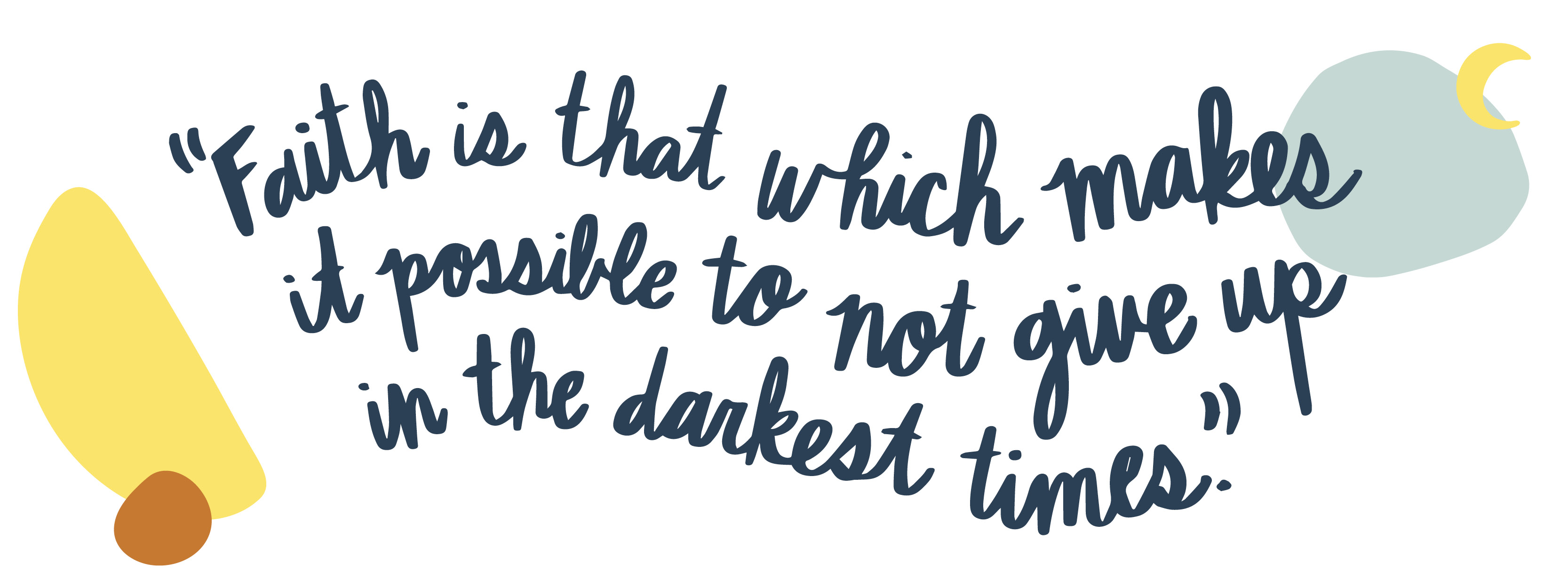
Embrace the Future
A rabbi, a priest, a scientist. A Jew, a Catholic, a Christian. Each with their own paths to God, their own ways of reaching the sacred. According to Rabbi Angel, Fr. Godfrey, and Professor Huang, the future of faith is pluralism. The future of faith is community. The future of faith is acceptance. The future of faith is love.
